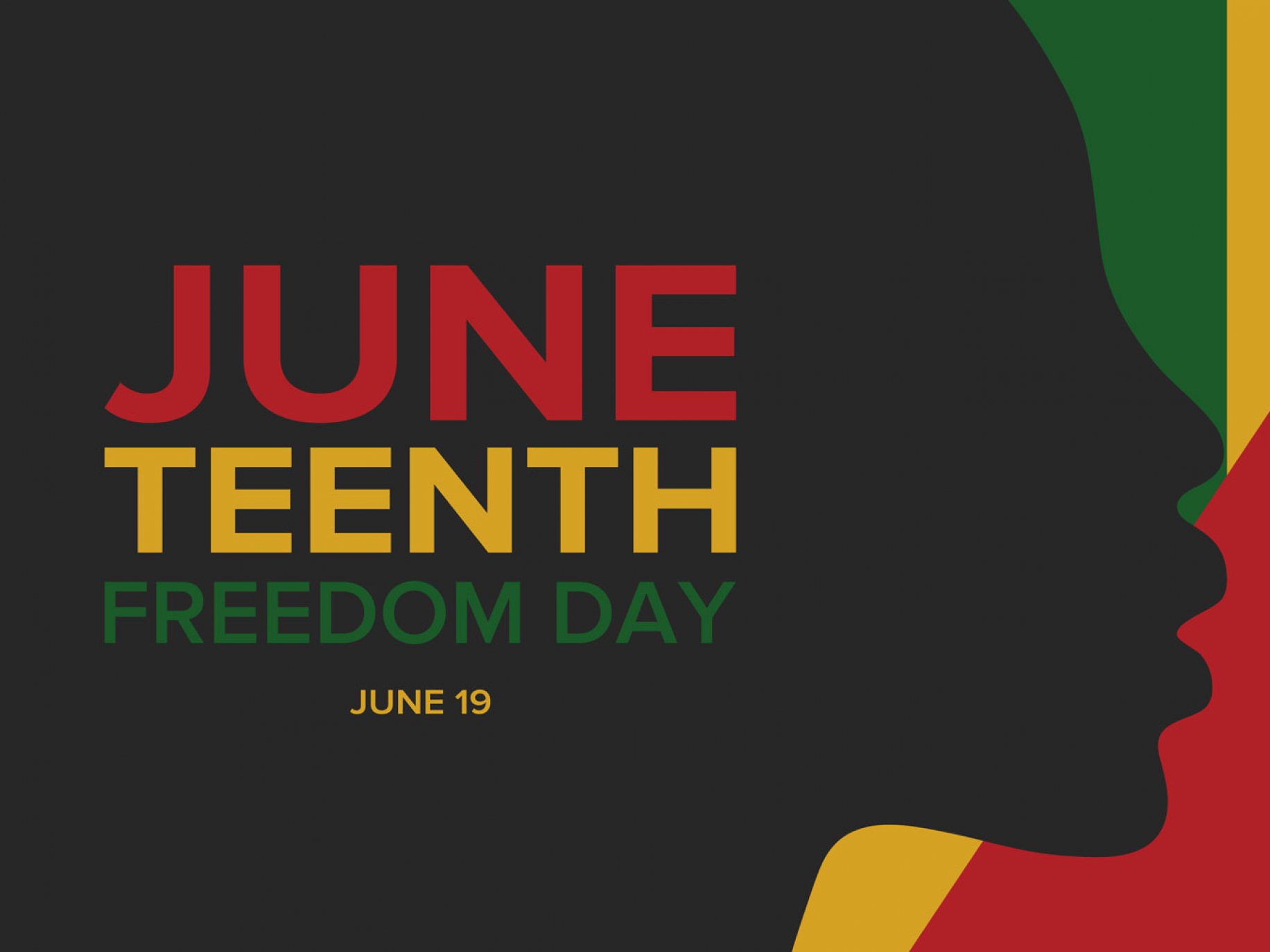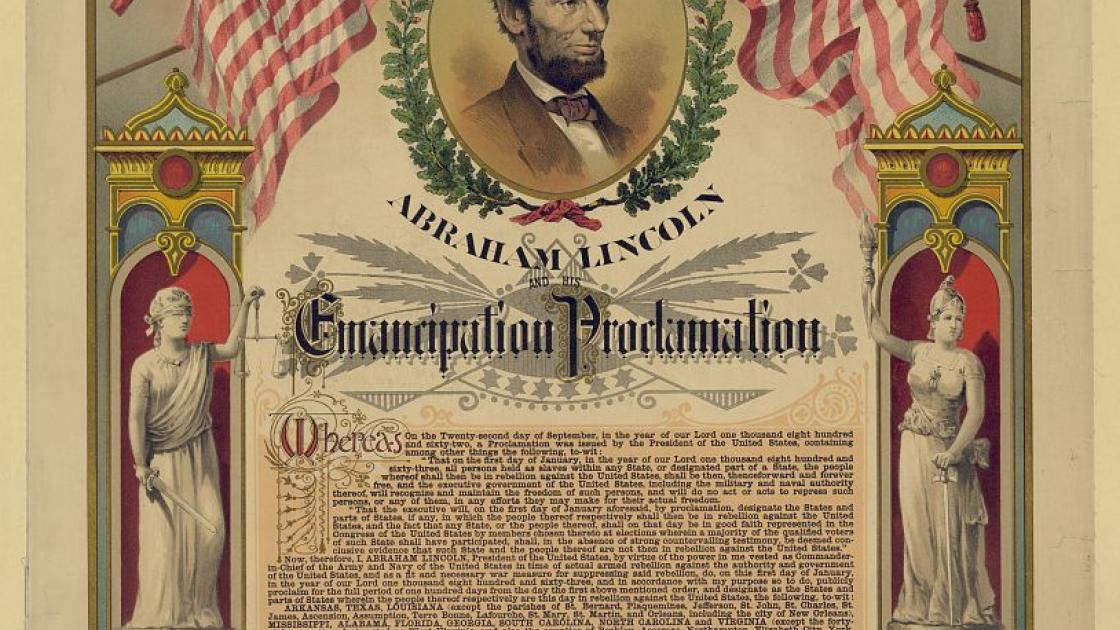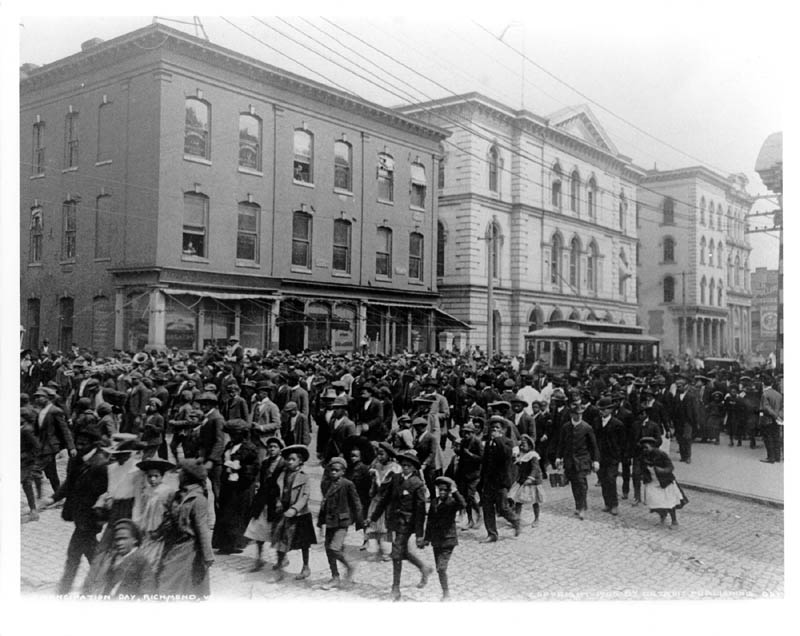
June 19, 2020, marks the 155th anniversary of Juneteenth — a mashup of June and nineteenth — the oldest-known celebration commemorating the end of slavery in the United States. It was on this day in 1865 when the last American slaves — a group of people in Texas — finally learned that slavery had been abolished and that they were free.
The chain of events leading to this historic day began with on January 1, 1863, when President Abraham Lincoln signed the Emancipation Proclamation. It stated: "I do order and declare that all persons held as slaves within said designated States, and parts of States, are, and henceforward shall be free; and that the Executive government of the United States, including the military and naval authorities thereof, will recognize and maintain the freedom of said persons."

The decree, issued amid the American Civil War (1861-1865), legally freed millions of enslaved people in the 10 Confederate States — Alabama, Arkansas, Florida, Georgia, Louisiana, Mississippi, North Carolina, South Carolina, Texas, and Virginia. However, the Union-loyal border states of Delaware, Maryland, Missouri, and Kentucky were exempted and continued to practice slavery. The 13th Amendment, passed by Congress on January 31, 1865, and ratified on December 6, 1865, closed the loophole, abolishing slavery across the United States.
The two laws freed all but the 250,000 enslaved people in Texas who had only heard unconfirmed rumors about the 1863 Emancipation Proclamation. It was not until June 19, 1865 — about three months after the Civil War ended on April 9, 1865, and almost two and a half years since President Lincoln signed the Emancipation Proclamation — that Maj. Gen. Gordon Granger of the Union Army arrived in Galveston, Texas, and announced General Order No. 3.
It stated: "The people of Texas are informed that in accordance with a Proclamation from the Executive of the United States, all slaves are free. This involves an absolute equality of rights and rights of property between former masters and slaves, and the connection heretofore existing between them becomes that between employer and hired laborer."

A year later, on June 19, 1866, the former slaves celebrated their new freedom with community cookouts, dances, and prayers, and Juneteenth was born. Over time, Emancipation Day, or Black Independence Day, as it is also called, has been observed in varying degrees in most US states and was even declared a holiday in Texas in 1980. However, it has been poorly understood outside of the African American community and overshadowed by the July 4th Independence Day celebration.
But the recent outcry against police abuse of African Americans and the growing awareness of systemic racism in US businesses and institutions has brought forth the national significance of Juneteenth. In the weeks leading to the day, many American companies, including Twitter and Nike, declared June 19 a paid holiday for all employees. Earlier this week, three governors — New York's Andrew Cuomo, Virginia's Ralph Northam, and Pennsylvania's Tom Wolf — signed orders making Juneteenth a holiday for state workers starting 2021. On June 19, 2020, New York Mayor de Blasio went one step further by making it a citywide and public school holiday starting next year. "We'll work with all the unions to work through the plan, give this day the importance and recognition it deserves," Mr. de Blasio said. "Every city worker, every student will have an opportunity to reflect the meaning of our history and the truth."

While this is a great start, it is not enough for 93-year-old Opal Lee, who has been campaigning to make Juneteenth a national holiday for over four decades. On Friday, June 19, 2020, the Fort Worth, Texas, resident continued her fight by marching 2.5 miles down West Lancaster Avenue — a distance symbolizing the 2.5 years it took for slaves in Texas to realize they had been freed. Lee has also taken her cause online with a petition for a million signatures on Change.org. So far, over 600,000 people have signed up, and the numbers are increasing by the minute.
Peniel Joseph, a professor at the University of Texas at Austin's Lyndon B. Johnson School of Public Affair is also a proponent of June 19 being a national holiday. In his June 13, 2020, op-ed for CNN, the expert wrote: "A national holiday commemorating Juneteenth would spur not only conversation about the origins of our current racial and political conflicts, but would also prompt vitally necessary education about white supremacy and its manifestations in policies and political actions that are anti-Black, anti-democratic and anti-human."
Resources: Vox.com, Patheous.com, LAtimes.com, NBCnews.com
